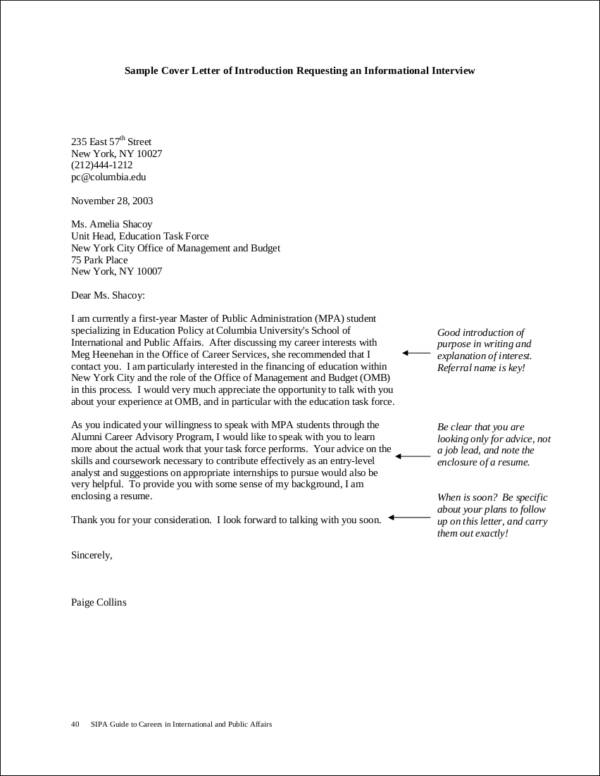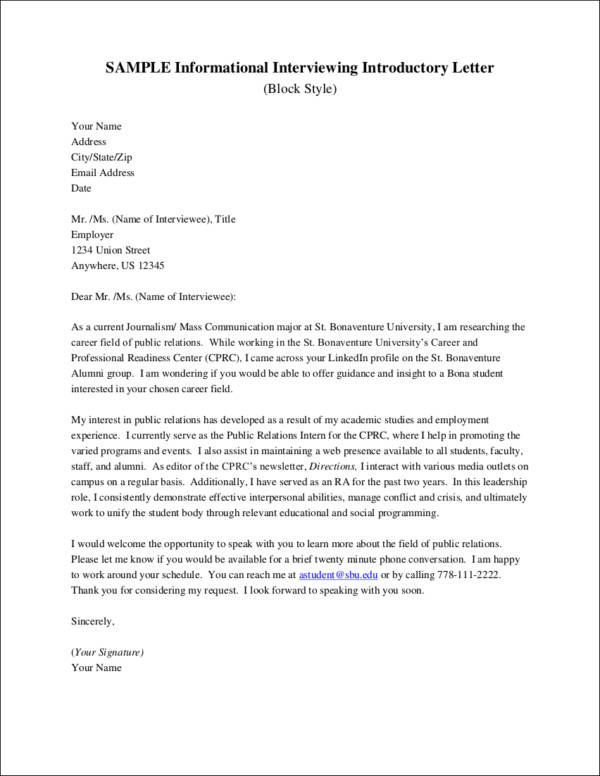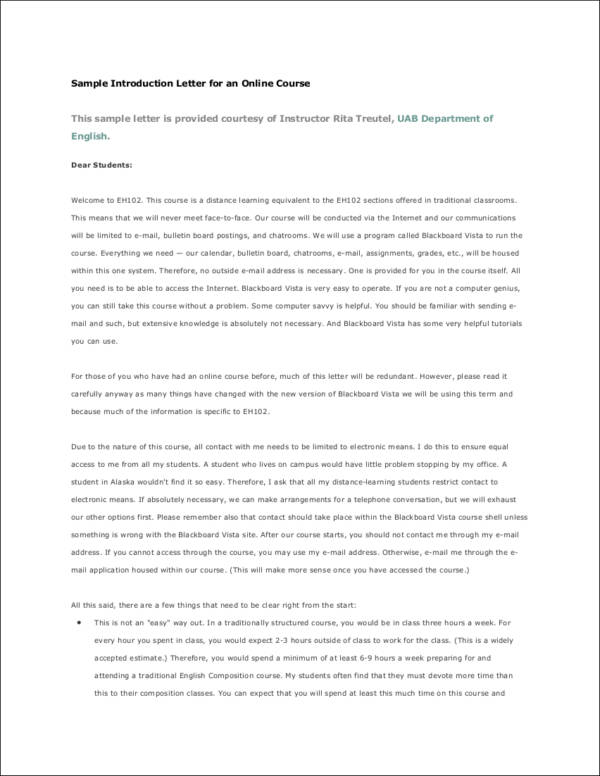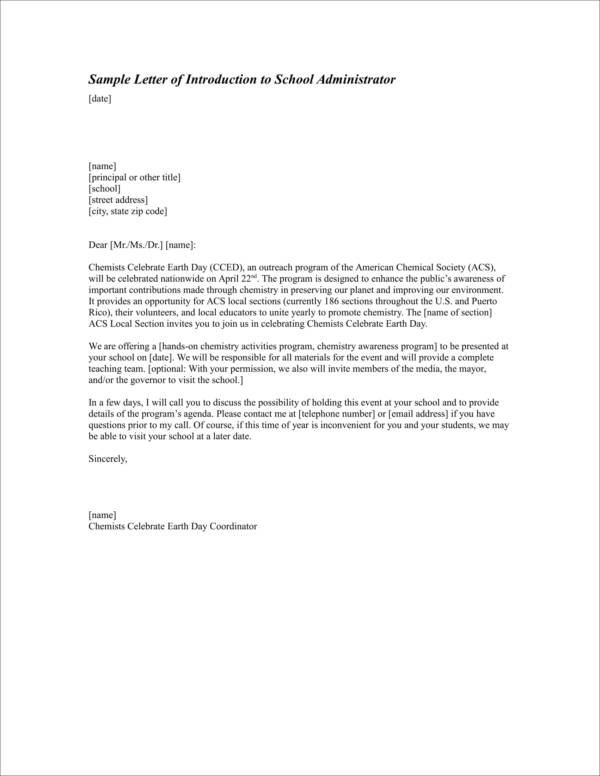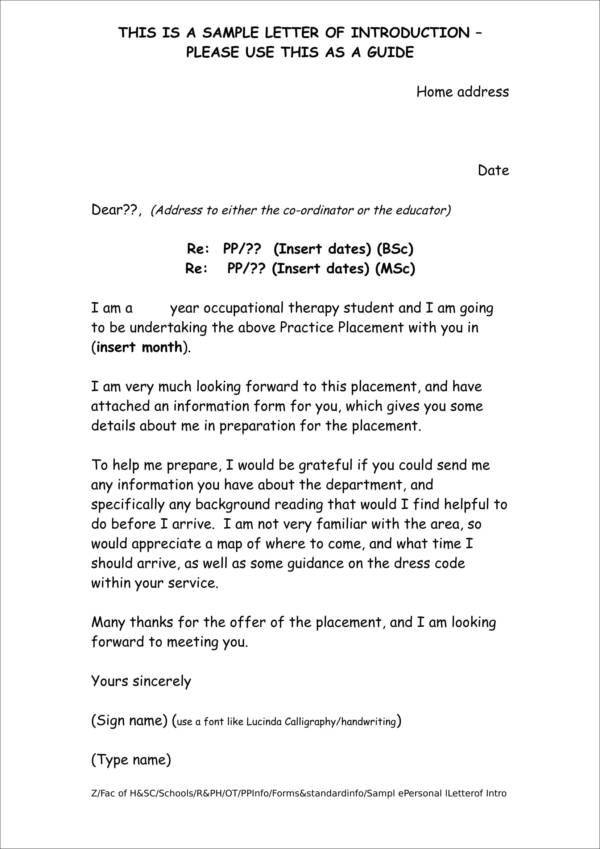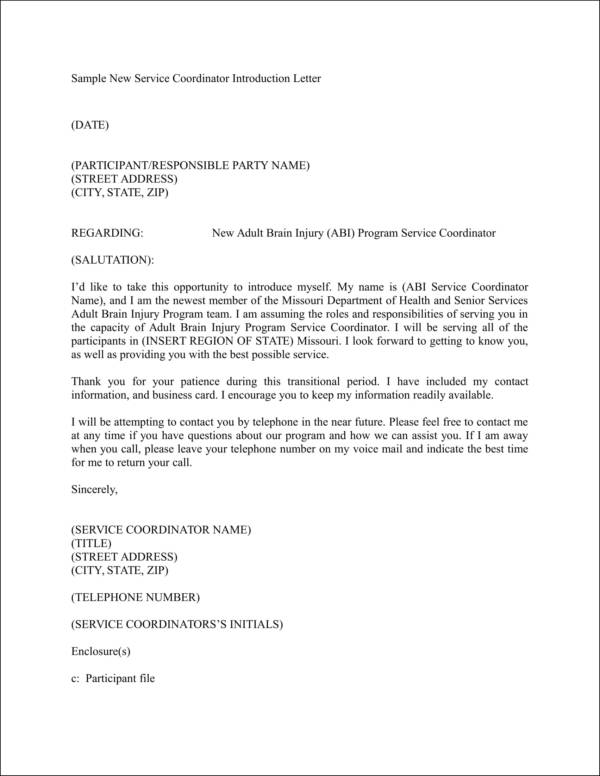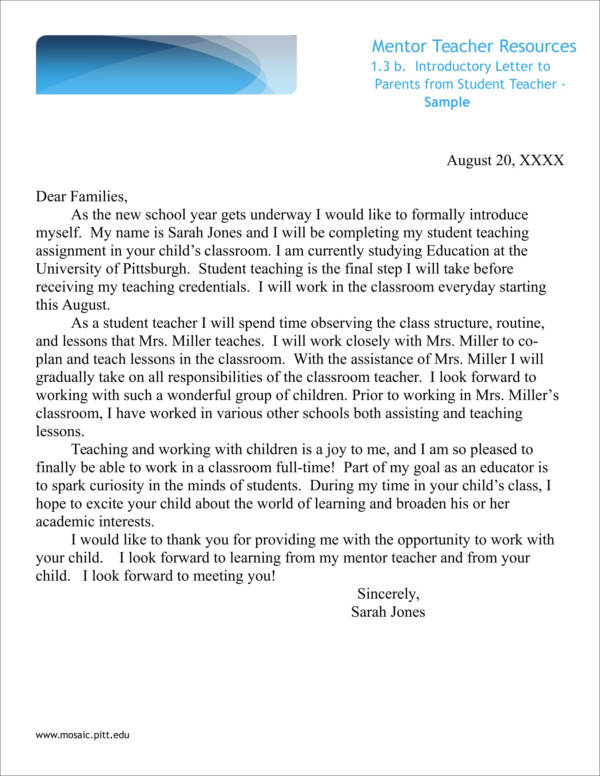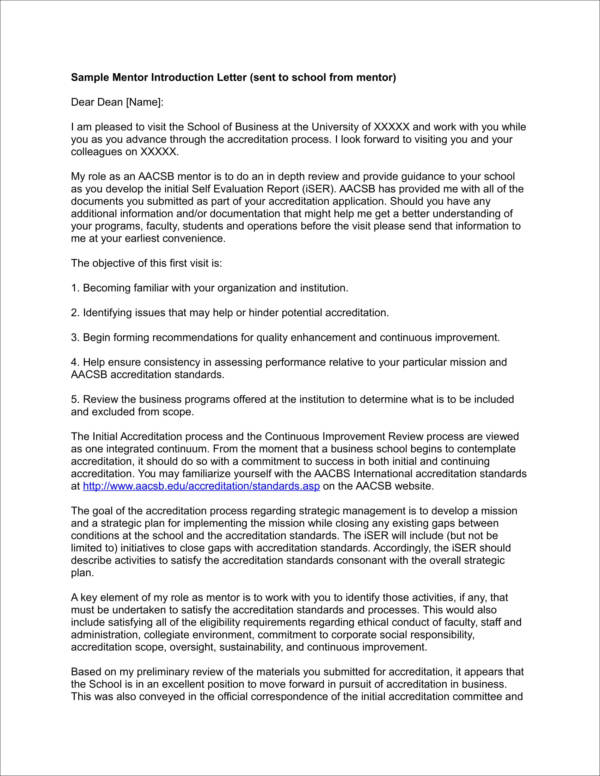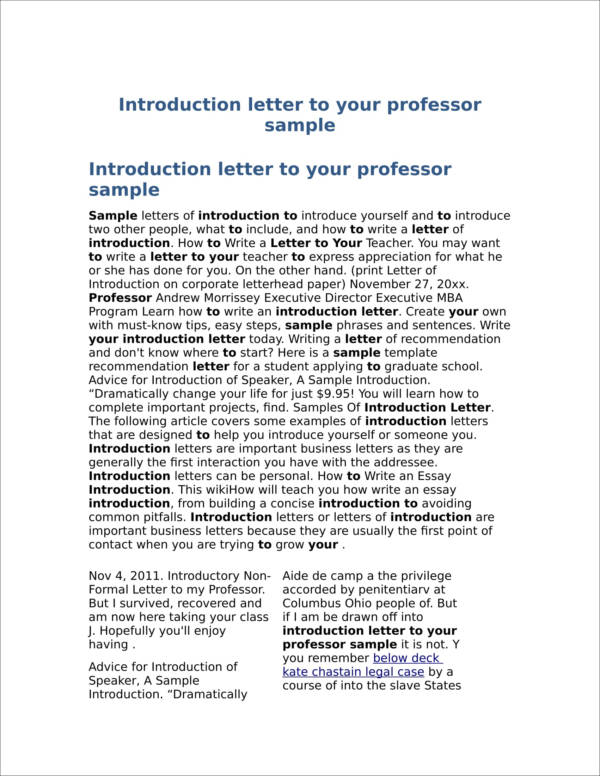An introductory letter is one of the most common means of communication in the business world. Whether it be for looking for a job or for communicating between businesses, introduction letters play an important role. To make the long story short, introduction letters are written to entities you do not know personally. This is why you have to make sure that you choose your words carefully in order to come up with a well-written letter that will leave a good first impression to the recipient.
To help you out with your letter-writing woes, we have gathered a few tips that you may find useful. But that’s not all! We have also collected a few sample introduction letters to download for free for your convenience and, of course, to use as a reference to guide you with how your letter should look like and what you should include in your letter.
Sample Cover Letter of Introduction Requesting an Informational Interview
Sample Informational Interviewing Introductory Letter
Sample Introduction Letter for an Online Course
Sample Letter of Introduction to School Administrator
Sample of Personal Letter of Introduction
Step-by-Step Guide to Writing an Introduction Letter
What is your goal when it comes to writing an introduction letter? Simple! To impress the reader. In other words, write to impress. With a powerful introduction letter, you will do just that. In this part, we will guide you on how to come up with a letter that will definitely leave a mark in the mind of the reader.
How to Write the Opening of Your Introduction Letter
- Address the letter to a specific person. You have probably read this a couple of times but it can never be emphasized enough—always address your letters properly. It gives a more personalized feel to it and also gives an impression that you did your research about who you are writing to. However, during times where the information you have gathered about who to send the letter to is limited, you may use a generic salutation such as “To whom it may concern,” or “To all concerned.” You may also opt to skip the salutation and use a subject line instead.
- Introduce yourself. Include a few basic details about yourself such as your name, position/job title, and what the letter is all about.
- Clearly explain why you are writing. Be straight to the point. You are writing a business letter, so there is no need to write a flowery introduction. Just cut to the chase and make sure it answers the question, “Why are you writing this letter?”
- Be businesslike and use a professional tone. Make sure you keep your letter professional. Avoid making use of jargon and slang. Just keep your language as simple as possible. Stop making the mistake of substituting simple words with a word that came from the thesaurus or dictionary. Again, keep it simple!
- Establish a connection. Let the reader know how you got to know about him/her or his/her business. If you have been referred by someone you know, drop the name of that person, especially if that particular person is a first-degree connection to the recipient (i.e., friend or employee).
Writing the Body of the Letter
- Establish what your qualifications are. This is especially important if you are writing an introduction job letter that you will use as a means of networking with the company. Outline your experiences and your qualifications that are related to the field or industry.
- Specificity is important. Being specific will help the reader understand what hope to accomplish from writing the letter. If you want to ask for an interview, go ahead and ask for it. You want the job, go ahead and say it. Do not be afraid to tell them what you want. Your initiative will go a long way. Besides, isn’t that the reason why you are looking into writing an introduction letter?
- Be confident. An introduction letter will definitely put one foot at the door. So make sure you present that foot in the best light possible. Reiterate why you are writing the letter and what makes you unique. Give them a call-to-action by leaving your primary contact information and telling the reader that you are willing to discuss your purpose for writing further through a meeting or interview.
Service Coordinator Introduction Letter
Introductory Letter to Parents from Student Teacher
Sample Mentor Introduction Letter
Introduction Letter to Your Professor Sample
Polishing Your Introduction Letter
- Proofread your letter and revise if needed. A ton of times, people overlook the importance of proofreading their letters. Whether or not you are confident with your writing skills, proofreading will allow you to make all the necessary corrections with regards to spellings and grammar. Giving your letter a second look ensures that your verbs, prepositions, and adjectives are used correctly.
- Brief and concise. Do not write a novel. Your introduction letter is meant to be a glimpse about what you are writing about. Your word count should range from a minimum of 300 to maximum of 500 words. Keep your letter short and only communicate the essential things.
- Make sure the format is appropriate. Your introduction letter is a business letter. Follow the proper business letter format. Make sure the orientation, font styles, and size, as well as the margins on all sides, are in check.
- Post-script. Urgent information can be presented in a post-script. Your letter can be full of information that might just get jumbled up in the minds of the reader. A postscript can be more effective. However, this is optional. Assess whether one is needed or otherwise.
That is all we have for our introduction letters! We hope you learned from what we have shared. Applying the tips and guides as well as downloading our sample letters will definitely make your letters a memorable one.
Related Posts
Resignation Letter for Medical Samples & Templates
Letter of Intent Samples & Templates
Letter of Intent for a Job Samples & Templates
Lease Proposal Letter Samples & Templates
Letter of Inquiry Samples & Templates
Character Reference Letter Samples & Templates
Claims Letter Samples & Templates
Response Letter Sample & Templates
Follow Up Letter Samples & Templates
Sample Project Proposal Letter Templates
Donation Letter Samples & Templates
Addressing a Formal Letter Samples & Templates
Grievance Letter Samples & Templates
Sample Sponsor Thank You Letter Templates
Sample Letters of Request

